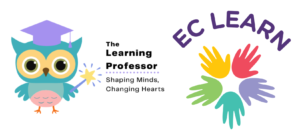The Problem with Worksheets
You never want to get on a plane where the pilot learned to fly from worksheets. ~ Todd Whitaker
I was teaching a class recently, and I noticed a common theme…as much as teachers have heard that worksheets are not appropriate they just seem to have a hard time letting go of them. I think the problem is that perhaps deep down they still believe that worksheets have some value to children, or that if they aren’t using worksheets then they aren’t really teaching. That could just not be further from the truth.
So what’s wrong with worksheets?
- Worksheets often have a “right” answer. Which means that they also have a wrong answer. However, the wrong answer doesn’t allow children to use trial and error to learn from it. Instead, the wrong answers on a worksheet lead children to believe that there is no value in risk-taking because only the right answers are valued. Seeing a lot of wrong answers can also reduce a child’s belief in her/his ability.
- Similarly, worksheets can only be used in one way. This means that children aren’t using higher order thinking skills like they would if they were playing with concrete materials.
- Children are concrete learners, which means they need concrete objects in order to learn a new concept. Worksheets are abstract, and are therefore incapable of teaching this type of learner. This is what makes them developmentally inappropriate.
- Since worksheets can’t teach children of such a young age, that means the only thing they can do is present, or test, a concept that children already know. And if children already know it, then why are we wasting our time on it?
- Worksheets are task-oriented activities rather then learning activities. When completing a worksheet, the goal becomes to finish the worksheet rather than learn the task at hand.
- They don’t allow children to work together or collaborate on a project. At an age where social skills are of the utmost importance and are still forming, the activities in our classrooms should promote collaboration, not discourage it.
- Worksheets do not allow for creativity, divergent thinking, or the opportunity to display learning in different ways.
- Most often, all of the children in the class are working on the same worksheet. This goes against common logic, because we know that not all children will be at the same level of development.
- Worksheets waste valuable time, focus on teaching only rote skills (Volante, 2004).
- Overly academic approaches may offer short term success, such as children being able to recite alphabet letters or rote count, but this comes at a cost. Children from overly academic schools may not have engaged in the higher-order thinking activities that help them understand why things are the way they are. They don’t have a firm foundation for later success. They also have less time for social skills development and often show higher levels of test anxiety compared with their peers from play based schools.
- Any concept portrayed in a worksheet can be taught better in a hands-on, meaningful way.
As Marilyn Adams said, “If they can do the worksheet they don’t need it. If they can’t, it won’t help them.”
Letting go of worksheets creates more time in your classroom to allow children to explore their interests in a meaningful way. And when you allow children to make choices, they become more motivated. Motivate children and you cause a release of dopamine in the brain, which unlike other neurotransmitters is spritzed on the brain causing it to reach larger areas. Motivate children and you increase learning.
There are numerous ways to engage children in meaningful literacy, math, and science concepts without the use of worksheets. What are your favorite play-based activities?







